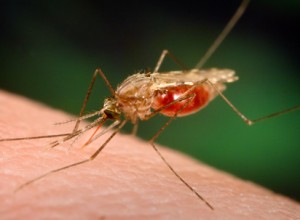Journalists from malaria endemic countries attend training in Geneva
 The RBM Partnership to End Malaria Media Fellowship training programme for journalists from the eleven countries in the world with the highest burden of malaria, has opened in Geneva, Switzerland.
The RBM Partnership to End Malaria Media Fellowship training programme for journalists from the eleven countries in the world with the highest burden of malaria, has opened in Geneva, Switzerland.
The eleven countries are Ghana, Burkina Faso, Cameroon, Democratic Republic of the Congo, India, Mali, Mozambique, Niger, Nigeria, Uganda, and the United Republic of Tanzania.
In November 2018, the RBM Partnership launched the inaugural RBM Partnership to End Malaria Media Fellowship and these journalists were selected out of over 140 journalists who submitted applications for the fellowship.
The 11 journalists were subsequently invited to attend the media training workshop in Geneva, as part of the fellowship award.
The workshop is being held alongside the World Health Assembly, which is taking place from May 20 to 28, 2019.
The workshop has been designed to expose the media practitioners to a wide range of initiatives led by RMB Partners, update them on everything from the latest research into malaria prevention and treatment, to the economic case for elimination of the disease.
They would also have the opportunity to meet with representatives from some key partners and organisations such as the World Health Organization, the African Leaders Malaria Alliance and PATH, to help them better understand the malaria landscape.
Among some topics to be treated during the workshop are history of malaria and eradication efforts, lessons learnt from recent elimination success stories, an overview of what has been achieved to date, the funding landscape and global strategies on malaria.
The fellowship workshop’s short-term objective is to share the Partnership’s knowledge and mission to end malaria with the journalists, with a view to inspiring and informing their journalistic work about the disease.
The RBM Partnership is the global platform for coordinated action against malaria. It mobilizes for action and resources and forges consensus among partners.
The Partnership is comprised of more than 500 partners, including malaria endemic countries, their bilateral and multilateral development partners, the private sector, non-governmental and community-based organizations, foundations, and research and academic institutions.
To achieve its vision of a malaria-free world, the RBM Partnership works in alignment with the WHO’s Global Technical Strategy for Malaria 2016-2030 targets.
By Eunice Menka, in Geneva, Switzerland
Copyright ©2019 by Creative Imaginations Publicity
All rights reserved. This article or any portion thereof may not be reproduced or used in any manner whatsoever without the express written permission of the publisher except for the use of brief quotations in reviews
